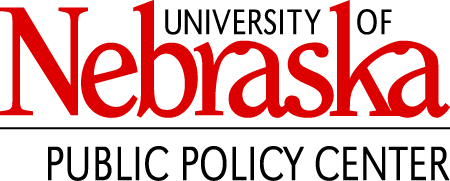Great Plains Disaster Behavioral Health Conference
The Great Plains Disaster Behavioral Health Conference is for psychiatrists, psychologists, social workers, mental health care providers, public health officials, nurses, clergy, emergency managers, and first responders to learn and recognize how to prepare and respond to the psychological effects of disaster and mass casualties.
2014 Conference
This year’s Great Plains Disaster Behavioral Health Conference focused on the psychological consequences of emergencies and disasters, including the impact of exposure to traumatic situations for survivors, responders, and communities, and practical steps to counter these impacts.
July 25, 2014
Old Market Embassy Suites Hotel
555 South 10th Street
Omaha, Nebraska 68102
Objectives
1
Learn how to create a plan to manage the aftermath of a critical incident, identify effects of post-incident trauma, and effectively address survivors’ post-incident needs.
2
Learn self-care coping techniques to minimize the risk of secondary trauma, compassion fatigue, and burnout in disaster behavioral health workers.
3
Understand the psychological process of receiving a disaster warning, lessons learned by other emergency responders about developing warnings, and who to assist survivors with emotional reactions related to warning compliance.
4
Review ethical considerations and challenges in providing disaster behavioral health services.
Conference Speakers
SSA Perry Woo
Assistant special agent in charge with Homeland Security Investigations, Los Angeles field office
Mr. Woo has 20 years of law enforcement experience both as a special agent and police officer. He has certifications and has expertise in cybercrimes, financial investigations, computer forensics, and undercover operations. On February 16, 2012, Mr. Woo was involved in a deadly workplace violence shooting at the Long Beach Federal building and had to take lethal action against another special agent in order to save the life of another special agent. The FBI concluded that Mr. Woo’s heroic actions not only save the lives of the critically wounded agent and himself but countless others who were inside the federal building during the time of the incident.
John Lehnhoff, PhD
Director of a community mental health center office, private practice, and clinical director and clinical consultant at Omaha’s Richard Young Center
John Lehnhoff has practiced clinical psychology since 1977 after receiving his doctorate from the University of Nebraska’s Clinical Psychology Ph.D. Program. He has served as the director of a community mental health center office, engaged in private practice, and was Clinical Director and Clinical Consultant at Omaha’s Richard Young Center for 16 years. Dr. Lehnhoff has served on adjunct faculty in the Clinical Psychology and Counseling Psychology programs at UNL, and the Creighton Medical School Department of Psychiatry. He has provided many professional and community education trainings on numerous clinical topics. Since 2003 he has served as a Clinical Psychologist Consultant for all Alegent Creighton Health Behavioral Services in Nebraska and Iowa.
Karla Vermeulen, PhD
Undergraduate and graduate professor at the State University of New York and deputy director for the Institute for Disaster Mental Health
Karla Vermeulen currently teaches undergraduate and graduate courses at the State University of New York, New Paltz. Dr. Vermeulen is currently developing an Advanced Certificate in Trauma and Disaster Mental Health Counseling to provide specialized graduate education to mental health professionals. In her role as Deputy Director for the Institute for Disaster Mental Health she has coordinated the development and delivery of curricula for the New York State Office of Mental Health and Department of Health, the Red Cross, the United Nations, and other organizations, and has worked with Palestinian and Israeli helpers to create pyscho-educational materials for coping with trauma.
Jim Harvey, LCSW
State disaster behavioral health coordinator for Nebraska Department of Health and Human Services
Jim Harvey retired from the Nebraska Department of Health and Human Services (NE-DHHS), Division of Behavioral Health in November 2013. At NE-DHHS, some of Mr. Harvey’s projects included state-level program development and implementation in employment, housing, criminal justice, and quality improvement. Mr. Harvey also served as the state disaster behavioral health coordinator for 20 years and was designated as the state planner for Community Mental Health Service Block Grant for 15 years. Mr. Harvey also has over 12 years of experience providing mediation services and is experienced in large group facilitation.
Conference Materials

Conference Agenda
Contacts
University of Nebraska Public Policy Center
Disclaimer
This website is part of a coordinated effort on behalf of the U.S. Federal Government and the Nebraska Department of Health and Human Services Division of Public Health, Division of Behavioral Health, and the University of Nebraska Public Policy Center. Funding was made possible [in part] by U3REP190555 from the Office of the Assistant Secretary for Preparedness and Response (ASPR). The views expressed in written materials or publications do not necessarily reflect the official policies of the U.S. Department of Health and Human Services or the Nebraska Department of Health and Human Services, Division of Public Health; nor does mention of trade names, commercial practices, or organizations imply endorsement by the U.S. Government or the State of Nebraska.




